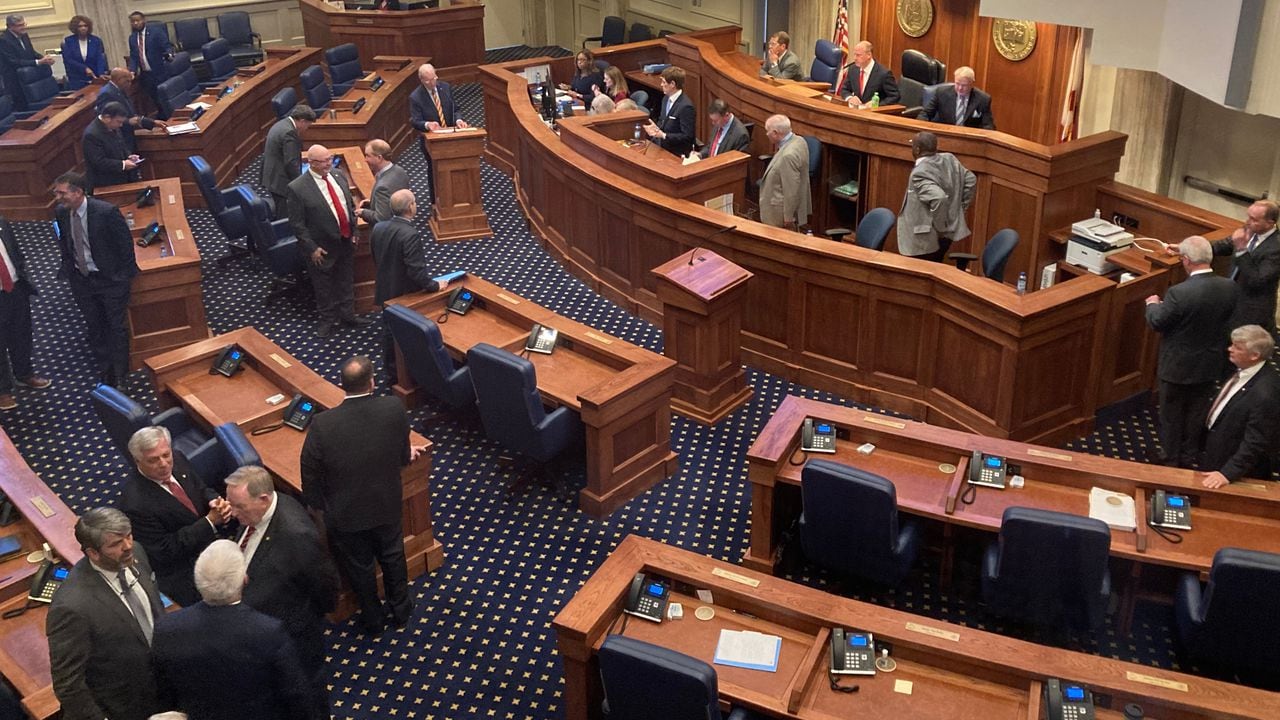Plan for lottery, casinos, sports betting short of votes
The senator handling the legislation to allow voters to decide whether to authorize a lottery, casinos, and legal sports betting in Alabama said the plan does not have the votes to pass at this point.
Sen. Greg Albritton, R-Atmore, said the Republican caucus, which holds 27 of the 35 seats in the Senate, discussed the legislation Tuesday.
Albritton said he has to try to change some senators’ minds to reach the 21 votes needed to pass the constitutional amendment, three-fifths of the Senate. Albritton did say he thinks a majority of the Senate supports the plan.
Albritton said the legislation would not be moving this week. The next step for it will be consideration in the Senate Tourism Committee.
There is still time. Tuesday is the seventh meeting day of the legislative session, which can last up to 30 meeting days spread over up to 15 weeks.
The House passed the constitutional amendment, HB151, by a vote of 70-32 on Thursday, clearing the 63-vote requirement. The House also passed a companion bill, HB152, that spells out some of the specifics about how the constitutional amendment would be implemented.
If lawmakers approve the constitutional amendment, it would go on the ballot for voters in November.
Alabama voters have not had a chance to vote on a lottery proposal since 1999.
Supporters of the plan say that vote is long overdue. They say the legislation would replace a patchwork of gambling amendments with a uniform law. It would create the Alabama Gaming Commission to license and regulate the casinos and sports betting. The commission would include a law enforcement arm that could crack down on what proponents say is widespread illegal gambling, which they say causes harm but provides no benefit to the state.
The Legislative Services Agency estimated the state could receive up to about $900 million a year in net revenues from the lottery, casinos, and sports betting.
Opponents of the bill said it would lead to more gambling addictions that hurt families. They have also criticized the way the legislation picks locations for the casinos.
Under the proposed constitutional amendment, the commission could license up to seven casinos. The companion bill designates where six of those would be located – Birmingham, Mobile County, Macon County, Greene County, Lowndes County, and Houston County.
The seventh casino would be in northeast Alabama and be operated by the Poarch Band of Creek Indians. That would be contingent on the governor negotiating a compact with the Poarch Creeks that would also allow the tribe to offer full casinos games at its casinos in Atmore, Wetumpka, and Montgomery, which now offer electronic bingo machines that operate similarly to slot machines. That means Alabama would have a total of 10 casinos.
The legislation would create a public corporation to run a state lottery, which could also include multi-state games and scratch-off games.
Under the plan, the Legislature would appropriate net revenue from the lottery for education purposes and the casino and sports betting revenue for non-education purposes.
The seventh casino would be in northeast Alabama and be operated by the Poarch Band of Creek Indians. That would be contingent on the governor negotiating a compact with the Poarch Creeks that would also allow the tribe to offer full casinos games at its casinos in Atmore, Wetumpka, and Montgomery, which now offer electronic bingo machines that operate similarly to slot machines. That means Alabama would have a total of 10 casinos.
Albritton sponsored a similar plan that passed the Senate three years ago, although some of the membership has changed since then. That legislation died in the House.
This year’s legislation came after an ad hoc committee appointed by House Speaker Nathaniel Ledbetter, R-Rainsville, studied the issues for more than a year. The bills are sponsored by Rep. Chris Blackshear, R-Phenix City.
